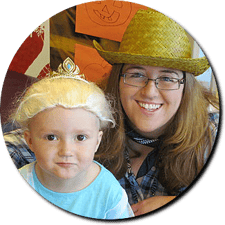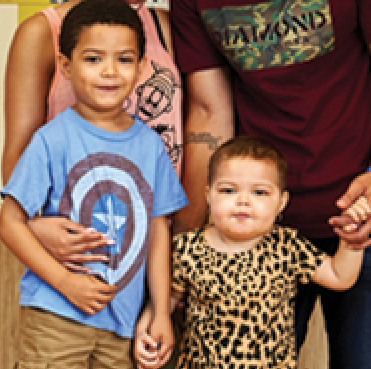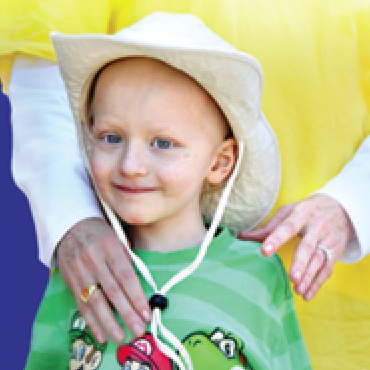A Child Life Specialist is an integral part of the healthcare team yet prior to a pediatric hospital stay many individuals do not know the roles and functions that a child life specialist plays in the health care journey. Their central role is to help young patients and their families cope with the challenges of illness and hospitalization. Their support and advocacy make a profound difference in the families’ ability to maintain a sense of normalcy during this vulnerable time.
Child life specialists understand that the techniques to help children manage the stress and trauma of illness differ from those used to help adults. Moreover, when age-appropriate techniques are used with and taught to children they:
- Heal as quickly as possible;
- Cope better with pain and need fewer sedatives and less pain medication; and
- Develop properly and avoid lasting negative effects on their wellbeing.
The Child Life Specialist has an expertise in child development and is able to provide appropriate interventions to inform, prepare and support children through medical testing and procedures. They use language that children can understand to educate and reduce uncertainty and fear. They help ease the stress and anxiety leading up to medical procedures and treatment through therapeutic play and expressive activities. And they practice coping strategies and use distraction to redirect focus and improve cooperation with the healthcare team. Family-centered care has a positive effect on the patient as well as their caregivers’ well-being. The Child Life Specialist understands the family is relinquishing control and is there to keep them in the loop by providing information and support.
Here is how the three Child Life Specialists describe a typical day in the hospital. Their testimonies offer a glimpse into the powerful impact they have on patients and their families:
Lindsay Southwick, CCLS, CTRS
Children’s Hospital Of Philadelphia, NJ Division of Hematology & Oncology
“Some of the most important situations where I feel Child Life has made a difference are the scenarios where control is restored to the patient in an environment where most control has been taken away. Child Life Specialists help to facilitate important conversations and the presentation of ‘choices’ that the patient may be able to have over their care, environment, etc. This can include what arm they prefer to get ‘poked’ in, which distraction techniques they would like to utilize for their port access or lumbar puncture or even what project they want to do in the playroom that day. I also facilitate medical play sessions with appropriate patients which gives them the opportunity to safely play through any of their emotions. This puts the patient in the ‘driver’s seat’ and allows them the chance to perform IV starts, lab draws, port accesses on a patient puppet or doll and manipulate the medical equipment that they see on a consistent basis."
Kelly Blanchette, CCLS
Morristown Medical Center & Overlook Medical Center

“I had a ten year old patient who needed to get a spinal tap, but didn’t like anesthesia. He decided he wanted to try to do it awake. I wanted to make sure he knew what it would be like, and explained to him what would happen, demonstrating with a Slinky. We talked about what it would feel like and what we could do to make the experience as easy as possible. He did amazing! During the spinal tap, we used the iPad for distraction, and he didn’t feel a thing. It went so well that he did the rest of his spinal taps awake, and then told other kids about it. We now have several patients who prefer to do their spinal taps awake, and I provide distraction in whichever way works best for them."
Nicole Trujillo, CCLS
Newark Beth Israel Medical Center
“What I love most about my job is that every day is completely different from the day before. I am often called by medical staff to provide distraction for patients who are receiving medical interventions on the unit such as port accesses, dressing changes, blood draws and IV starts. In my opinion, this makes a huge difference for not only the patient but their family too. I had the privilege to work with an eight-year-old boy who had been diagnosed in the hospital and was admitted for the entire duration of his treatment. During these months the patient and I spent a lot of time together finding ways to cope while being in the hospital for an extended period of time. We face-timed with his family when they were not able to be present at the bedside, had dance parties daily with medical staff, endless amount of Uno tournaments and we decorated his entire room with artwork that he and the staff made. I also spent a lot of time working with the patient’s siblings helping them better understand their brother’s diagnosis/treatment plan and ways for them to cope with him being away from home.”
While the field continues to get more recognition, it is the hope of many that child life becomes a standard of care in childhood centers across the United States. These dedicated professionals take child care to the next level acting as an ear to listen, a shoulder to cry on, and a friend to laugh. They add light and comfort to an often dark time in a child's life. We thank these devoted workers for there service and care!










